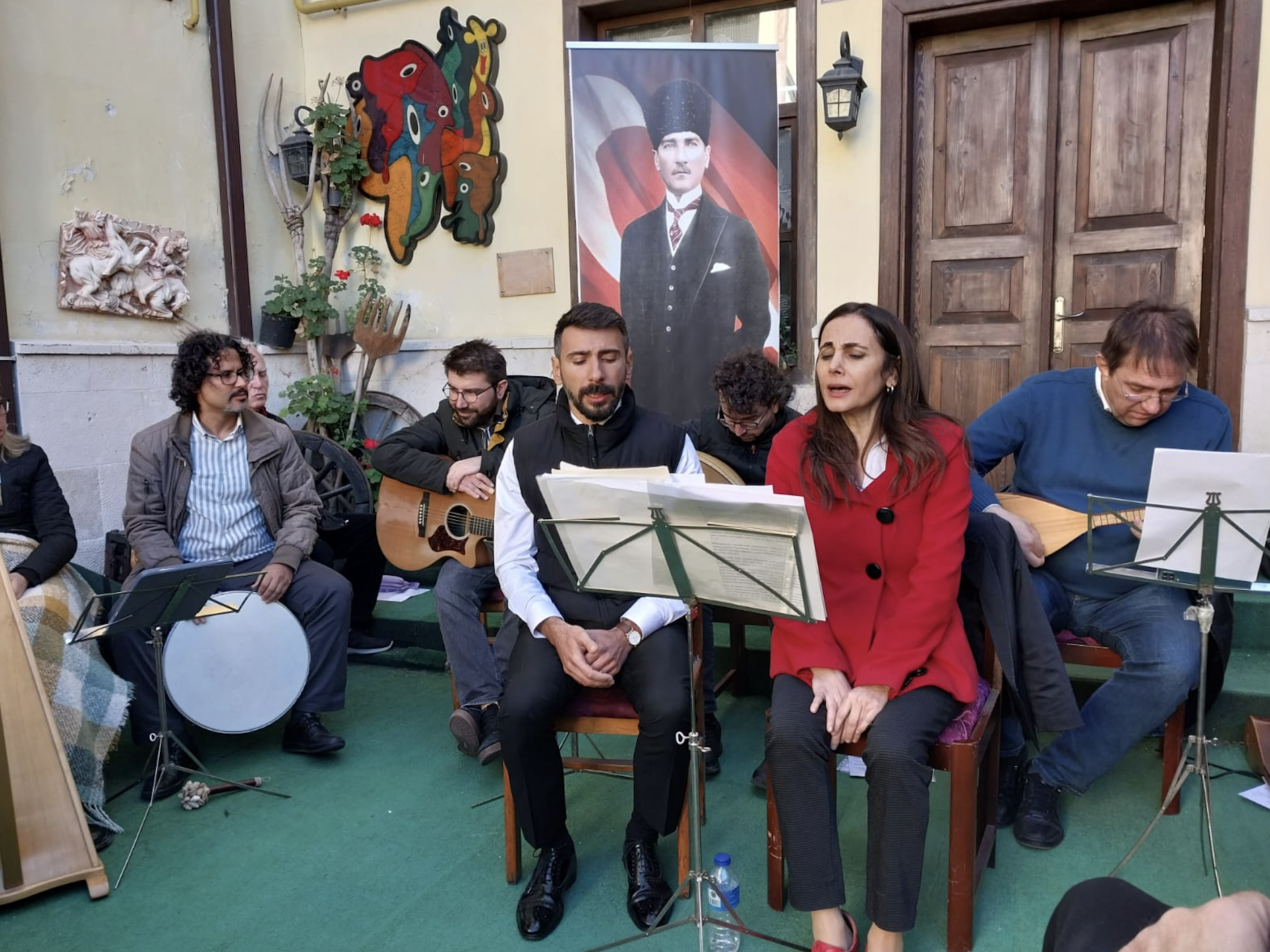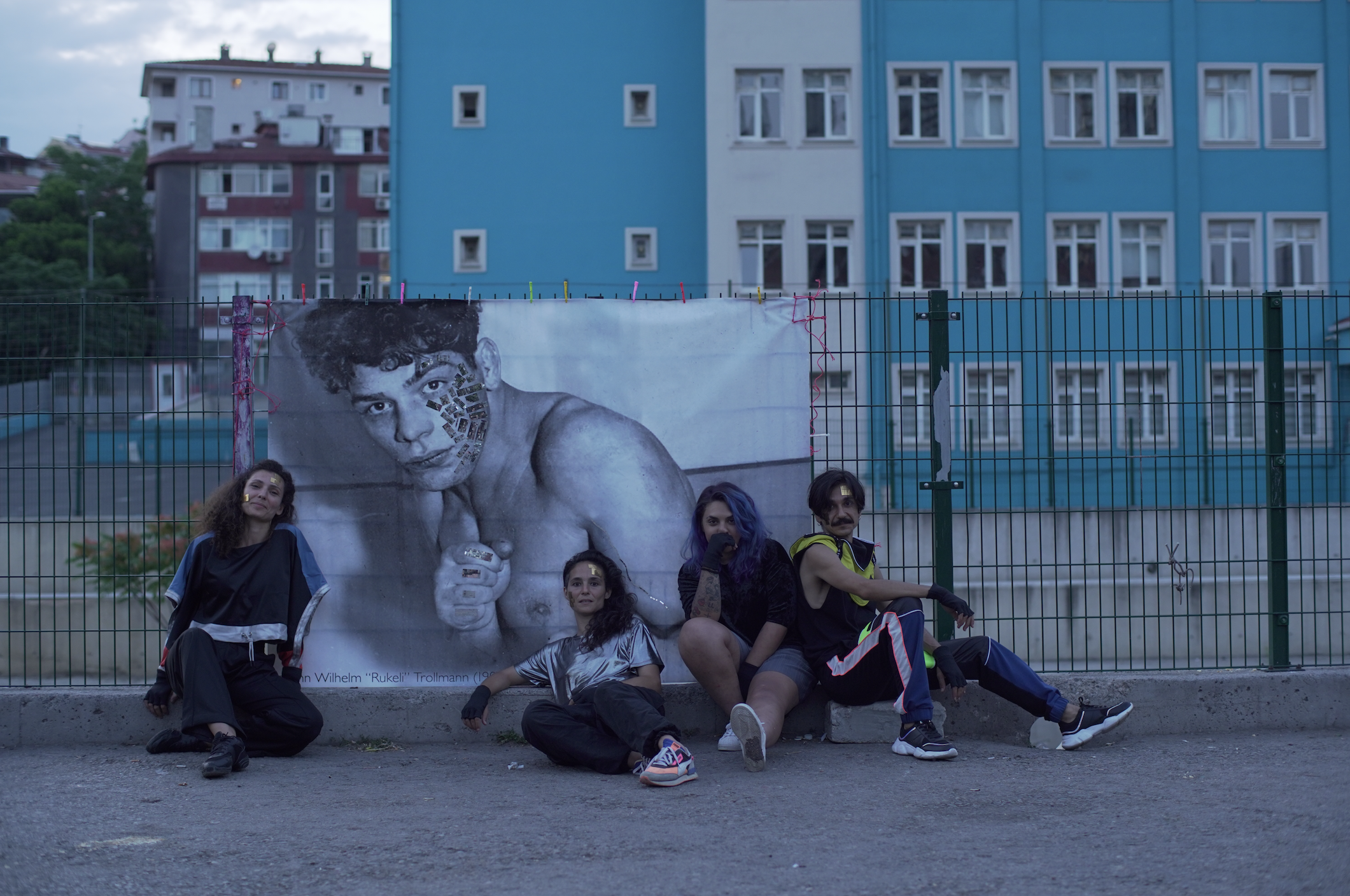Produced by 11 bit studios and released in November 2014, This War of Mine sent shockwaves through the games market. Inspired by the 1992-96 Siege of Sarajevo, the player in This War of Mine controls a group of civilians rather than a soldier in combat, and the goal is surviving the war.
EMRE CAN DAĞLIOĞLU
VARTAN ESTUKYAN
Video games are often discussed in the context of the addiction they allegedly create, or the harm caused by the violence they contain. There are claims that go even beyond urban legends when it comes to the influence of especially war-themed games on children. However, now there is a game that will completely change this perception regarding war-themed video games. Produced by 11 bit studios and released in November 2014, This War of Mine sent shockwaves through the games market. Inspired by the 1992-96 Siege of Sarajevo, the player in This War of Mine controls a group of civilians rather than a soldier in combat, and the goal is surviving the war. In other words, as senior writer Pawel Miechowski states, this game takes a completely different viewpoint to war. The game successfully represents the civilians’ perception of war as they strive to survive in an environment where “civilisation is down”. It also challenges the perception that regards video games as pure entertainment. The game met the costs of its production on the first day of its release, so departing from this game that received such intense interest, we asked Özgür Budak, Mehmet Kentel and Umut Yener Kara, “Is it possible to make video games of crimes against humanity?”
‘Subjecting creative dynamics to moral checkboxes suffocates our experience’
Özgür Budak (Ege University, International Relations Department)
I think this question is part of a much broader debate: What are the ethical boundaries of computer games from a thematic and aesthetic viewpoint? To be frank, as a member of the first generation of 80s games culture, and as an apprentice of the craft of social sciences, I must say I have no clear answer. People who judge video games from a distance, and negatively react to the violence, irony and nihilism they contain, it is easy to say, “This should be allowed, that should not be allowed”. However, I perceive games as artistic objects of production, and believe that any rushed judgment on the matter should be reconsidered in view of other fields of artistic production.
Yet this is also precisely the point where the problem arises. It remains to be asked why the case for controlling games can be made so easily, since they are not perceived as an established form of artistic production. On the other hand, the public pressure of masses disturbed by game themes, at times forces game producers to introduce updates to use “less sensitive” images. Computer games are as much part of the entertainment industry as they are an important element of a subculture. The themes that dominate this culture might appear irresponsible, self-interested and even immoral to those who view this subculture from the outside. However, one must not forget that underground literature faces similar accusations.
There isn’t that much of a difference between the specialist’s discourse accusing games of irresponsibility, and American conservatives who blame underground literature for rape. As a general principle, I feel that subjecting intellectual and imaginary creative dynamics to tiny moral checkboxes suffocates our experience.
‘As we take games more seriously, they begin to tell us more diverse stories’
Mehmet Kentel (Editor of game mag Fareler Oyunda [Mice Will Play])
In the same way that we have films, novels and poems about crimes against humanity, it is quite natural to have video games about them. Clearly, these games will never correspond ‘completely’ to the events they represent, as in other forms of narrative, and of course, there is no guarantee that they will be good games, but it is fair to say they can be done. The more we take games seriously, and realize that they tell good or bad stories, and that they develop different forms of interaction with those stories, the stories these games tell us become more diverse and complex. We should not overlook the fact that what This War of Mine does different is that it chooses to narrate the experience of war from the viewpoint of civilians; otherwise, the history of video games about crimes against humanity is almost as old as the history of the form itself. Let us not forget that the mainstream games industry produces many games each year that in one way or another repeats, or narrates from the viewpoint of soldiers, the US occupation of Middle Eastern countries. Games are records of history, and we have seen enough variations on Call of Duty not to surrender games to the ‘victors’.
‘It is in the nature of video games to interact more directly with stories’
Umut Yener Kara (Hacettepe University Communication Sciences Department)
“Not everyone in war is a soldier” is the tagline This War of Mine adopts in reference to the hundreds of games that narrate war from the viewpoint of soldiers, commanders and the like. In this game, we witness numerous crimes against humanity we would expect under conditions of war: A father shot by snipers while trying to take medicine to his child, mothers working as sex workers to get food for their children, civilians who resort to pillaging, violence and theft to survive, and many others… This War of Mine proves the much-overlooked potential of video games as it weaves a narrative of serious themes such as human drama and crimes against humanity. The interactive nature of video games allows for the creation of a subject position for the player and a more direct association with the narrative. In addition to this, rather than pre-prepared singular stories, games offer a certain zone of freedom to players in which they can create their own story. Nevertheless, the player is not safe and secure in the position of an innocent viewer, as is the case in similar narratives in other art forms; because innocence, in games like This War of Mine, is very difficult, if not impossible, to retain.





